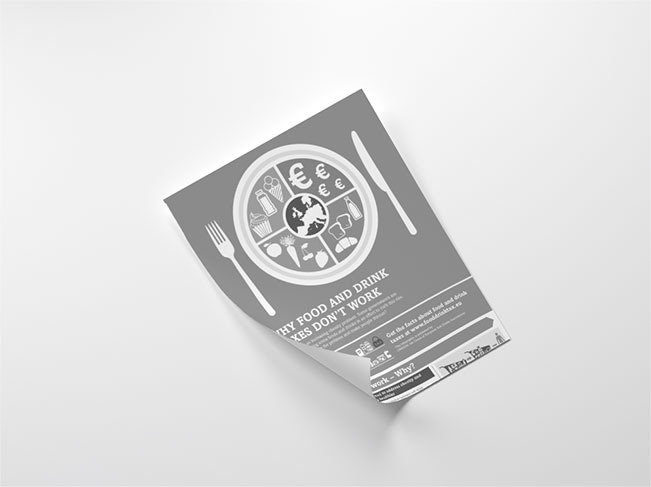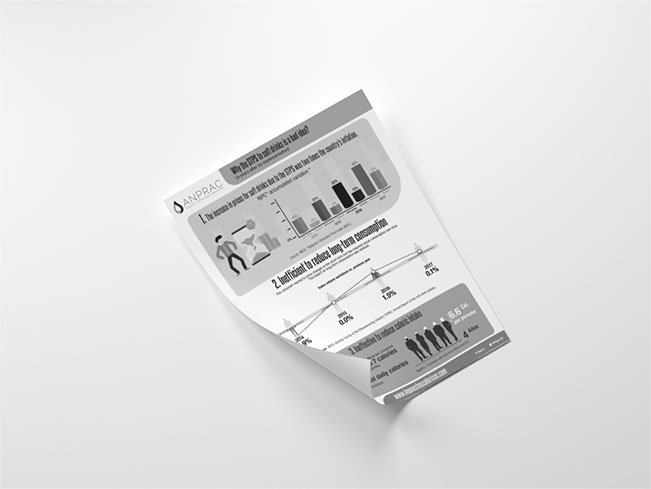This site provides an information resource on food and drink taxation.
It is designed to be a one-stop destination for those looking for factual information on the impact of food and drink taxes on populations and economies. The site is sponsored by UNESDA Soft Drinks Europe.
Latest Updates from around the World
Soda tax in Washington D.C. is a bad idea, argues professor from George Washington University
In an opinion piece, David Brunori, research professor of public policy at the Trachtenberg School of Public Policy and Public Administration at George Washington University, argues that introducing a...
Read moreReport on soda tax inconclusive, says professor in The Hill
David Ketchen, professor in the Raymond J. Harbert College of Business at Auburn University, in an opinion published on the US media outlet The Hill, reports on a new study from the University of Berk...
Read moreUS researchers conclude going only for current “sugar taxes unlikely to produce the reduction required on obesity”
Analysing the effects of the UK and Mexican soft drinks levies, U.S. researchers conclude in the American Journal of Clinical Nutrition that while the tax led to reduce obesity. They argue taxes on...
Read moreInfographics
Video
Why food and drink
taxes don’t work
Watch a short video to find out why tax won’t solve obesity, discriminatory taxes don’t work and discriminatory taxes have unintended consequences.
FAQs
01.Aren’t taxes the only way to counter big marketing?
Taxation does not educate people on how to eat balanced diets and lead healthy, active lifestyles. Marketing can engage with people and encourage them to adopt healthier habits. Soft drinks marketing continually promotes balanced consumption and active lifestyles.
01.Don’t taxes reduce consumption?
Studies have shown that taxation can have the effect of reducing consumption in some product categories. However, it is also observed that those people who consume the most are likely to be the most resistant to price rises. Hence the people who perhaps should be encouraged to consume a certain food or drink more moderately are the very ones who continue to consume them despite the tax.
In addition, in the soft drinks category, even if people do stop purchasing products because of tax, they are likely to switch to other drinks and hence their actual calorie reduction is minimal.
01.What else can governments do?
Governments could create solid initiatives to educate people on how to eat a balanced diet and lead healthy, active lifestyles. Instead of taxing people, governments should support them in adopting good habits by teaching them about balanced nutrition.
01.What is the food industry doing to address obesity?
The food and drink industry has worked extensively to reformulate its products, reduce sugars and fats and introduce new, innovations with healthy profiles.
The soft drinks industry has introduced no and low sugar products extensively and they now account for up to 30% of sales in many countries. In addition, back in 2006 the soft drinks industry committed to not sell its products in primary schools across the EU. It also committed to not advertise its products to children under 12 on TV, in print or online. In secondary schools – where soft drinks are available for sale – they are sold in non-branded vending machines and a full selection of drinks is available including waters, juices and no and low calorie products alongside regular varieties.
01.Why is sugar being targeted?
All foods contain calories eg. sugars, fats, proteins, carbohydrates. Sugar, like all products, should be consumed in moderation. Targeting sugar in the diet via taxation is not a clear way to ensure that people adopt healthier eating habits.


